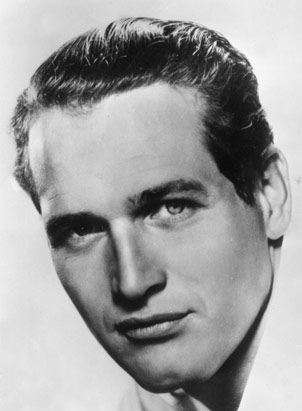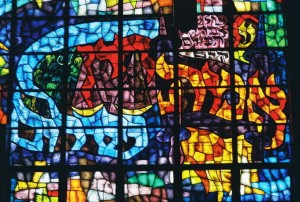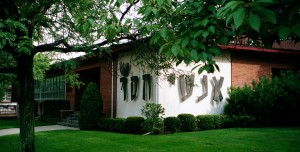Archive for the ‘Jewish Community’ Category
Is Ashkenazic Hebrew Obsolete?
The yeshiva day school movement has long embraced the idea of teaching modern Hebrew. Most of these schools are pretty tzioni: they celebrate Yom Haatzmaut, they march in the Israeli day parade, their seniors take a trip to Israel, and their graduates spend a year in Israel. In such schools, teaching modern Hebrew has always made sense.
However, it appears that, in recent years, there is a growing interest in modern Hebrew among even more “right-wing” elements in our community. After all, this is the language spoken in “Eretz Yisroel,” and many graduates will go on to seminary or yeshiva in Yerushalayim.
Furthermore, as Yiddish seems to wane among Ashkenazic Jews, Hebrew is becoming a universal Jewish language.
In addition, we are seeing increasing numbers of modern Hebrew speakers in the U.S. It is not uncommon for Israelis of all stripes and hats to live in our communities and join us in our shuls. Hebrew-speaking Sephardim, Chasidim, baalei teshuva, Europeans, Russians, “chilonim,” and yeshivish people comfortably glide between Jewish communities in Israel and the U.S. In addition, some of our more tzioni friends have opted to speak Hebrew to their children in the home, either to teach the language, or in anticipation of making aliyah. Almost all Orthodox Jews have been to Israel at one point or another, many for extended stays.
As a result of all this, it is quite possible that Ashkenazic Hebrew, the way our European grandparents may have learned it, it going out of fashion. Yes, frummer schools may still teach it as “the davening accent” but, as anyone who ever went to Israel knows, that’s not exactly how we speak Hebrew these days.
Our local day school has a very long tradition, and has always taught an Ashkenazic accent in Hebrew. At some point in the later grades, students would figure out that there are different accents and that modern Hebrew is actually very different. In the last few years, however, the school (thankfully) realized their Hebrew language program was weak. Their students were just not as fluent as those in other schools. As a result, they instituted new programs, aimed at teaching Ivrit B’Ivrit, at least part of the time.
This is a good thing. However, there is something very funny about this new arrangement. Most of the week, they learn Hebrew with their main teacher, a product of yeshivish culture. Then, for certain periods during the week, they are visited by an Israeli teacher who does Hebrew activities with them and refuses to speak any English.
In their studies, they learn of “Chet,” and “Tet,” but when they get to the end of the alphabet, there is also apparently something called “Suf.” Of course, if there is a “Suf,” then really, it should be “Ches” and “Tes.” …A little bit of a contradiction here? To confuse the matter even more, they learn about Kamatz, and how it is pronounced differently from Patach. Oh, and the Israeli teacher says “Chet” differently from “Chof” and “Ayin” differently from “Aleph.”
Are we confusing the kids? At first I thought so. But now I think not. They’ll learn soon enough how Hebrew is actually spoken these days. And does it matter to anyone how they daven when they grow up? Not where I live. So let the schools confuse them. For better or for worse, it won’t be long before those funny accents from “the old country” become obsolete. Will I mourn the loss of a tradition? Some might, but I probably won’t. I myself learned Ivrit B’Ivrit.
Do you agree that modern Hebrew is taking over? Will you mourn the loss of Ashkenazic Hebrew?
My Geni Journey: On Paul Newman and Intermarriage
A few weeks ago, I discovered several new branches of my family on Geni.com.
I was thrilled to find distant cousins that I never knew! We emailed old stories of people long gone, and verified our common history. We updated each other on our family news, and even figured out a certain ancestor’s Hebrew name. I have since friended some of my new cousins on Facebook, and several have agreed to join Geni. It has truly been an incredible experience.
For those of you unfamiliar with Geni.com, it’s a website where you can input your family tree. And when Geni sees that you and another person have both described the same person as a relative, it prompts the two of you to connect your trees. This is how I found these long-lost cousins. Geni is pure genius.

Paul Newman was my second cousin three times removed
This discovery put me on a Geni high. But weeks later, one thing is still gnawing at me. I discovered that a good chunk of that side of the family is married to non-Jews.
I wonder whether their kids will ever connect with mine as “family.” I wonder if these memories of my grandmother’s great “Tante Rezhin” will mean anything to them.
I wonder whether they will ever take an interest in their “Jewish side” and study this family tree that has become so dear to me.
I don’t know how it happened along the way. I don’t know if a closer-knit family—or a more religious family—could have prevented it. But somehow, somewhere, these cousins decided it was okay to marry out of the faith.
The truth is that I should not have been that surprised. Our celebrated family connection to Paul Newman (the famous actor, 1925-2008) should not be our biggest pride. Though quite the celebrity, Paul was born of a non-Jewish mother, and felt little relationship to us, cousins on his “Jewish side.” He gave to many important philanthropic causes, but not specifically to Jewish ones.
And I am beginning to realize that there are also other parts of the family that are no longer Jewish….
One of my distant cousins married Jewish and became frum through Chabad. He said that if you look at this family tree, you see what the landscape of the Jewish community will be like in 20 years. I replied that I find comfort in the fact that at least some of us are still holding down the fort.
But what does “holding down the fort” really mean?
Does it mean that I teach my children to marry Jewish? That’s it? What if they don’t? What am I doing to actively prevent intermarriage?
I guess you can say that I try to show my children the beauty of Judaism and that I teach them the Orthodox lifestyle.
But there are no guarantees. I’m sure my ancestors back in the “old country” never thought their children or grandchildren would marry non-Jews. They probably never imagined it possible.
But here we are. So many American Jews marrying out of the faith. Even in my own family.
I’m still not sure how I feel about it, but I felt it warranted a blog post.
Do you have intermarriage in your family? How do you feel about it?
The Larger the Community…the Less Friendly?
Why are smaller Jewish communities friendlier? The easy answer is, “It’s because everyone knows each other. And whoever lives there is all they’ve got.” Ok, I live in a small community. I get that.
But here’s the bigger question in my mind:
What happens to a community as it grows that makes people unfriendly?
Do people just wake up one day and say, “You know, there are waaay too many people in this community. Maybe if I stop being friendly, they’ll all go away!”
Ok, probably not.
But something is happening there that I can’t explain. When the community was small, a new family was welcomed warmly with friendly introductions, welcome gifts, and Shabbat meal invitations. But now that the community is larger, people can’t do that anymore…?
Maybe you can argue that the community is so large, it’s hard to reach everyone who just moved in. It becomes impossible to keep track of all the newcomers. And you don’t want to leave anybody out. So since you can’t invite all of them for meals, you just invite none of them.
Yeah that makes sense.
Ok, no it doesn’t.
Why can’t people in larger communities just welcome whoever they see is new?
Everyone should get a welcome from someone.
So here is where you say, “In larger communities, nobody knows who’s new and who’s not!” This makes sense for about half a second. Ok, that’s enough, that was more than half a second. Read it again and now let’s think this through. You see someone at Kiddush that you’ve never seen before. There are four possibilities:
- They are new in the community.
- They are not new, you just never met them before.
- They have lived here for a while but are newly observant.
- They are visiting the community for shabbos.
Not one of these possibilities precludes you from being friendly to them. In all four situations, there is absolutely no reason not to say “Good Shabbos” and no reason not to start a friendly conversation with them.
How about something like this: “Sorry, I don’t think we’ve met before. Do you live here….? Are you visiting…? Have you met our rabbi yet…?”
It’s really not complicated. Really, it isn’t.
I was once in a different community for shabbos. The only person who said one word to me at Kiddush was a paid employee of the shul: the rabbi. While I was glad of that, I wondered why nobody else in a shul of 200+ people thought to be friendly. When I told my host later, she said, “Really? That shul is known to be the friendliest one in town!”
Maybe. But only friendly to people they know.
You must admit, it’s a very odd phenomenon.
In very large communities, I’m sure there are women who look across the street, see someone they don’t know, and think to themselves: “Hm, she doesn’t know me, why should she want to talk to me? Besides, her outfit is much more stylish than mine. I can’t even compete. Uch, I won’t even bother. Besides, I have my friends.”
And maybe there are women who say the opposite. “Uch, look at her imitation boots, and how her sheitel is so flat on top. She’s so not cool. I wouldn’t want to be friends with someone like that.”
Whatever it is that stops people from being friendly in a larger community makes absolutely no sense. It simply boggles the mind.
I love my friendly community. We practically bombard newcomers with questions. “Where are you staying? Where are you from? Do you know the so-and-so’s? How do you like the shul so far? Who else did you meet? Where are you eating lunch? Etc., etc.”
No matter how big our community grows, when you come for a shabbos, I intend to welcome you that very same way.
Come for a shabbos! We love visitors! Congregation Anshe Chesed in Linden, NJ